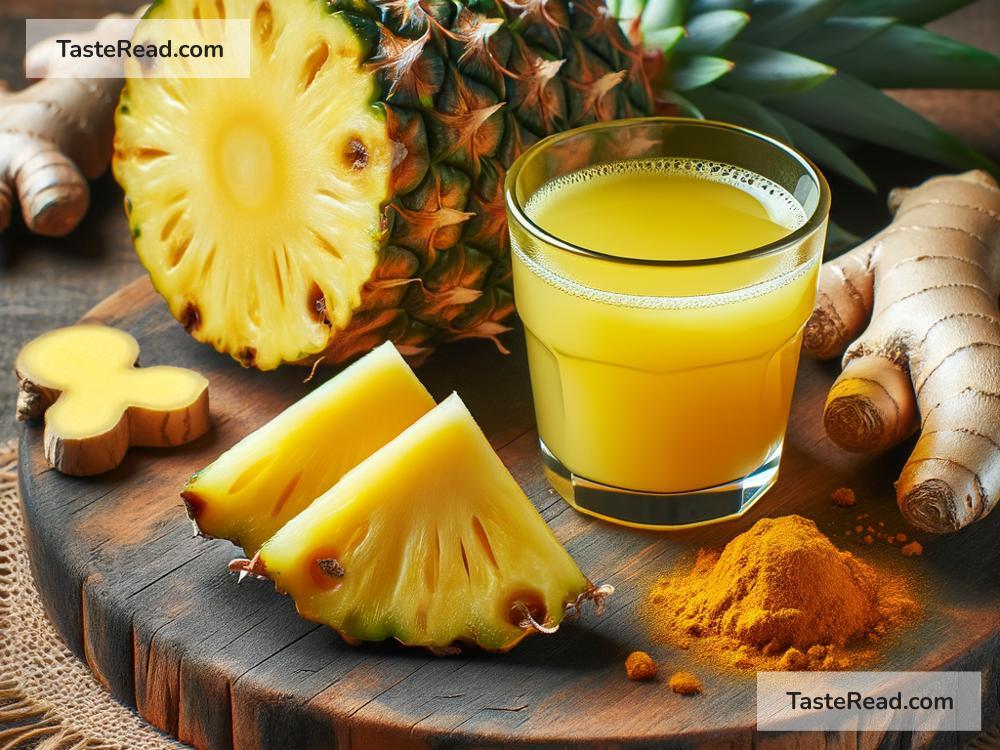Can Pineapples Help Reduce Inflammation?
When you think of a pineapple, you probably picture a sunny tropical fruit that’s sweet, juicy, and refreshing. It’s a favorite addition to smoothies, salads, or desserts. But did you know that pineapples might also be a secret weapon in reducing inflammation? Many people have heard claims about pineapples being good for health, but what exactly makes them special when it comes to dealing with inflammation? Let’s explore this tasty fruit and its benefits in simple terms.
What Is Inflammation?
Before diving into pineapples, let’s first understand what inflammation is. Inflammation is your body’s natural way of responding to injury, infection, or harmful substances. Think of it as your immune system’s alarm system. If you sprain your ankle, your immune system sends signals to the injured area. The result is swelling, redness, and sometimes pain. This is called acute inflammation, and it’s a short-term response that helps your body heal.
However, inflammation isn’t always helpful. When your body experiences inflammation for a long time, it becomes chronic. Chronic inflammation can lead to health problems like arthritis, heart disease, diabetes, or even cancer. That’s why keeping inflammation under control is important for overall health.
Pineapples: A Nutritional Powerhouse
Pineapples are packed with nutrients that are great for the body. They’re rich in vitamin C, manganese, fiber, and antioxidants. These nutrients support various aspects of your health, from boosting your immune system to improving digestion. But the true stand-out ingredient in pineapple is bromelain, an enzyme found in the fruit and stem.
What Is Bromelain?
Bromelain is a natural enzyme in pineapples that has powerful anti-inflammatory properties. It works by breaking down proteins in the body, which can help reduce swelling, pain, and discomfort. Bromelain is often used in supplements or medicine to treat conditions like sinusitis (inflammation of the sinuses), arthritis, or injuries.
Studies suggest that bromelain can lower inflammation levels and help the body recover faster after injury or surgery. Because of this, it’s a popular ingredient in natural remedies for inflammation.
How Pineapples Help Reduce Inflammation
When you eat pineapple, you’re giving your body bromelain. This enzyme helps reduce inflammation in several ways:
-
Reducing Pain and Swelling: Bromelain can help reduce swelling in joints, muscles, and tissues. For people with arthritis or joint pain, eating pineapple might help relieve discomfort over time.
-
Soothing Inflammatory Conditions: Bromelain has been used to treat inflammatory conditions like sinus infections and digestive issues. It may help soothe irritation and improve symptoms.
-
Improving Digestion: Bromelain helps break down proteins in food, making digestion easier. Poor digestion can sometimes trigger inflammation, so pineapple might help indirectly by keeping your gut healthy.
-
Boosting Recovery After Injury: Athletes and active individuals often use bromelain to recover after exercise or injury. By reducing inflammation, they can speed up healing and get back to their activities sooner.
-
Supporting the Immune System: Pineapple is full of antioxidants—like vitamin C—which protect your body from harmful molecules known as free radicals. This protection helps keep inflammation in check and supports your overall health.
How to Incorporate Pineapple Into Your Diet
Adding pineapple to your daily diet is easy and delicious. Here are some simple ways to consume more pineapple:
- Raw Fruit: Enjoy fresh pineapple slices as a snack.
- Smoothies: Blend pineapple with other fruits like mango, berries, or banana for a tropical drink.
- Salads: Add pineapple chunks to green salads for a burst of sweetness.
- Juice: Drink pineapple juice, but be mindful of added sugars if you’re buying pre-made juice.
- Cooking: Use pineapple in savory dishes like stir-fry or tacos for added flavor.
Things to Keep in Mind
While pineapple has many benefits, it’s not a one-size-fits-all solution. Here are a few considerations to keep in mind:
- Don’t Overdo It: Eating too much pineapple can irritate your mouth or stomach because of its acidity. Moderation is key.
- Allergies: Some people might be allergic to bromelain or pineapple. If you experience any discomfort, consult a doctor.
- Medical Advice: If you have chronic inflammation or serious health issues, don’t rely solely on pineapple. While it can be helpful as part of a healthy diet, it’s not a substitute for medical treatment.
Final Thoughts
So, can pineapples help reduce inflammation? The answer is yes! Thanks to bromelain and other nutrients, pineapples have properties that can soothe inflammation, ease pain, and support overall health. Including pineapple in your diet is a tasty and natural way to promote wellness.
Of course, pineapples aren’t a “cure” for inflammation, but they can be part of a balanced approach to managing it. Combine pineapple with other anti-inflammatory foods like leafy greens, nuts, and fish, and you have a recipe for feeling healthier and more energized.
Next time you enjoy a juicy slice of pineapple, remember: you’re not just treating your taste buds—you’re also helping your body fight inflammation and stay strong. Cheers to good health!


